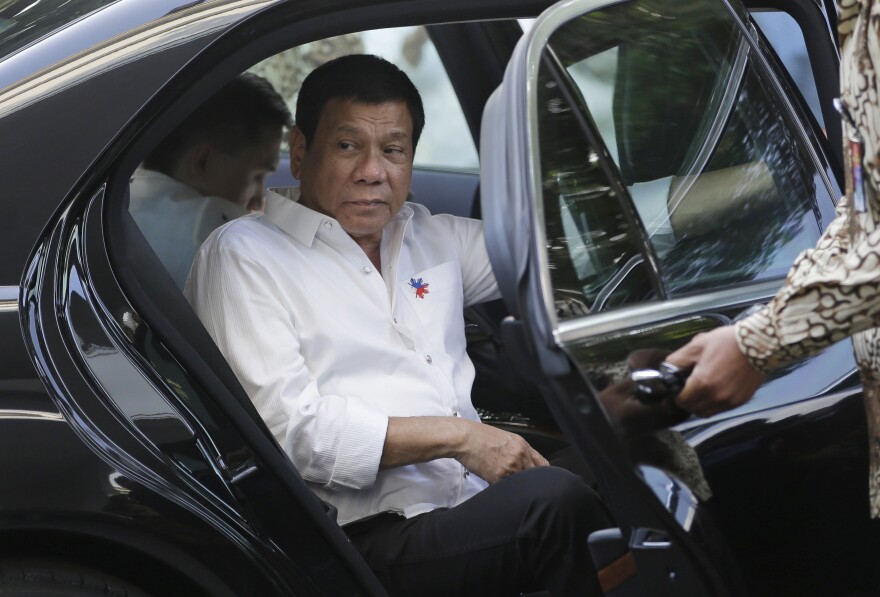The world’s eyes turned to the Philippines this week after President Rodrigo Duterte made disparaging remarks about President Obama during his visit to Asia. It’s not the first time Duterte’s comments have made international news since he took office in June, previously criticizing the U.S. and U.K. response to violence in the Middle East, and using a homophobic slur against the U.S. Ambassador to the Philippines.
University of Oklahoma anthropologist Noah Theriault, who studies the Philippines and spent time there this summer, says Duterte ramped up the country’s war on drugs as soon as he took office, which he had pledged to do during the campaign. He told KGOU’s World Views there’s a sense within the country that methamphetamine use and trafficking is a growing problem.
“There were some extremely disturbing [media] images emerging of people who had been killed and left in the streets, often with cardboard signs attached to their bodies saying things like, 'I'm a drug pusher. Don't follow my example',” Theriault said. “And it definitely was creating a sense of increasing fear among activists and civil society human rights advocates and others who were afraid that these extrajudicial killings were going to repeat patterns that they saw under previous administrations.”

Theriault says Duterte’s notoriety preceded his election to the Philippines’ highest office, having spent 20 years as the mayor of the southern town of Davao.
“He had a reputation for using what some people called 'death squads' to crack down on organized crime and others who he deemed to be threats to public security. And that practice seems to have been continued in his presidency now,” Theriault said. “And it's unclear whether the people who are being killed - either by the police or by private actors - are in fact involved in the narco-traffic in the way that Duterte claims they are.”
Duterte has drawn comparisons to Republican presidential candidate Donald Trump for his hard-line stance against the political establishment and a willingness to say what’s on his mind. But Theriault says that juxtaposition is misleading, because Duterte has more political experience, an established track record, and doesn’t come from the wealthy elite. But like the United States, Duterte’s election came during a period of strong economic growth that may not necessarily trickle down to ordinary Filipinos.
“In fact, inequality and poverty may be getting worse. So there's a lot of frustration with corruption, with inequality, with this notion that some people are really benefitting from growth, and others aren't,” Theriault said. “So those conditions, I think, are what favored a populist candidate who's willing to promise change at all costs.”
KGOU and World Views rely on voluntary contributions from readers and listeners to further its mission of public service with internationally focused reporting for Oklahoma and beyond. To contribute to our efforts, make your donation online, or contact our Membership department.








